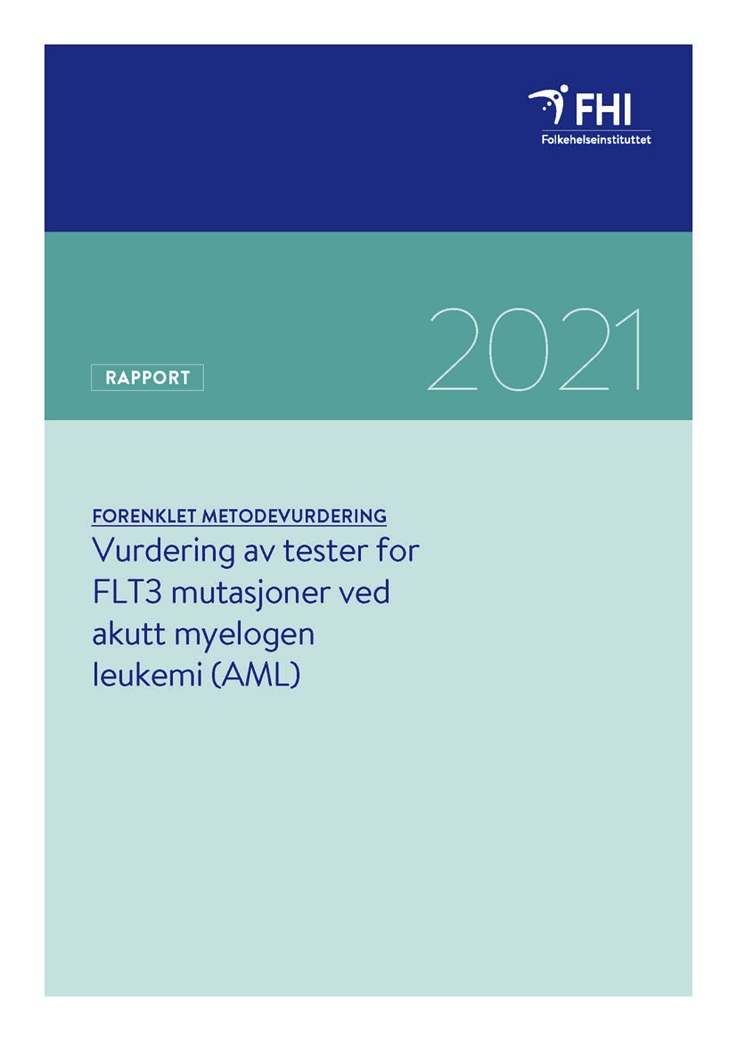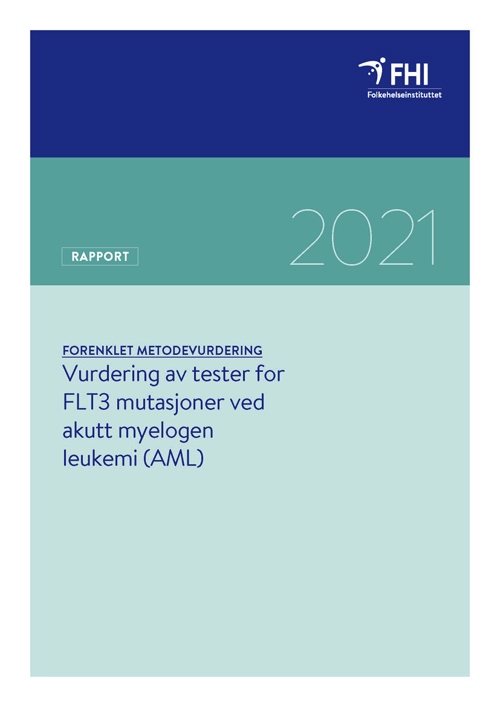Evaluation of tests for FLT3 mutations in acute myeloid leukaemia (AML)
Health technology assessment
|Published
Norwegian Institute of Public Health has assessed tests for FLT3 mutations in the treatment of acute myeloid leukemia (AML).
Key message
Acute myeloid leukemia (AML) is a form of blood cell cancer involving immature blood cells (myeloblasts) that grow and divide uncontrollably. AML is a heterogenous disease, where one of its main features is the characteristic overproduction of immature blood cells. This is caused by different genetic aberrations which alter the normal cell mechanisms for cell growth and division.
Genetic aberrations are unveiled through different test methods and can be of relevance in regard of prognosis and in choice of treatment after an established diagnosis or at the time of relapse. The Ordering Forum commissioned the Norwegian Institute of Public Health to evaluate tests that involve FLT3 mutations.
The knowledge base for this review evaluating FLT3 mutations consists of 17 scientific publications.
In relation to FLT3 tests:
- Testing for FLT3 is an established routine procedure for AML patients
- FLT3 mutations can be determined by different techniques; PCR fragment analysis, Sanger sequencing and next generation sequencing (NGS)
- FLT-ITD is the most common mutation to occur in AML patients (30 %), but when observed together with other genetic deviations the combined clinical relevance still remains aloof in cancer treatment
- FLT-ITD is associated with an unfavorable prognosis in AML patients at time of diagnosis and at relapse after initial therapy
We were unable to determine if gilteritinib should only be used as treatment in patients with a FLT3 mutation

